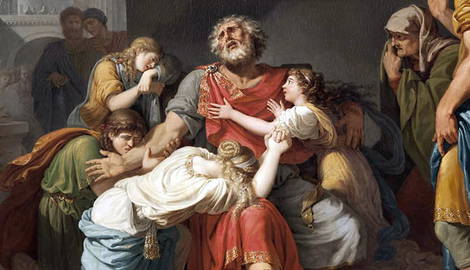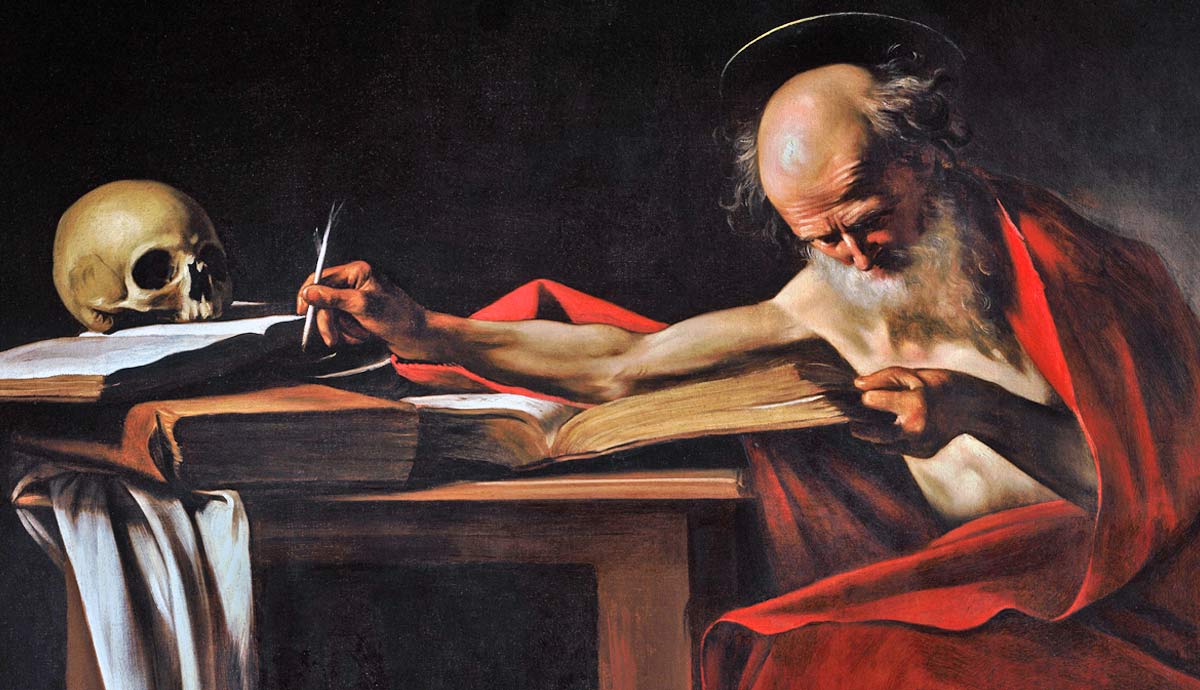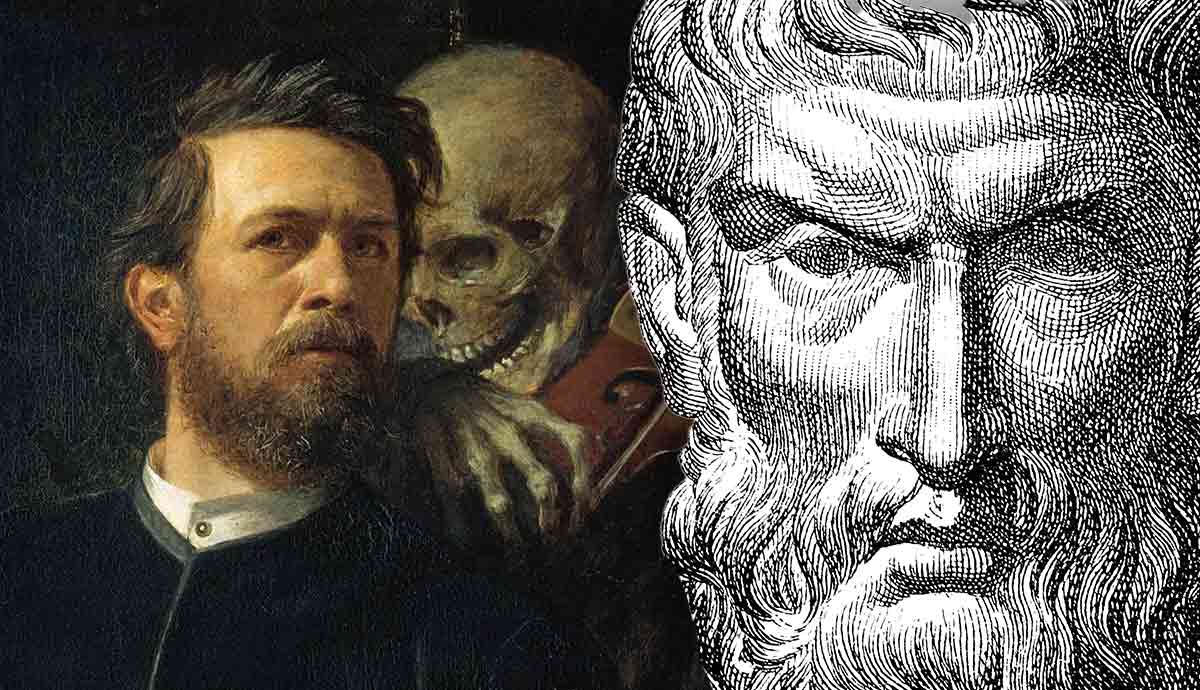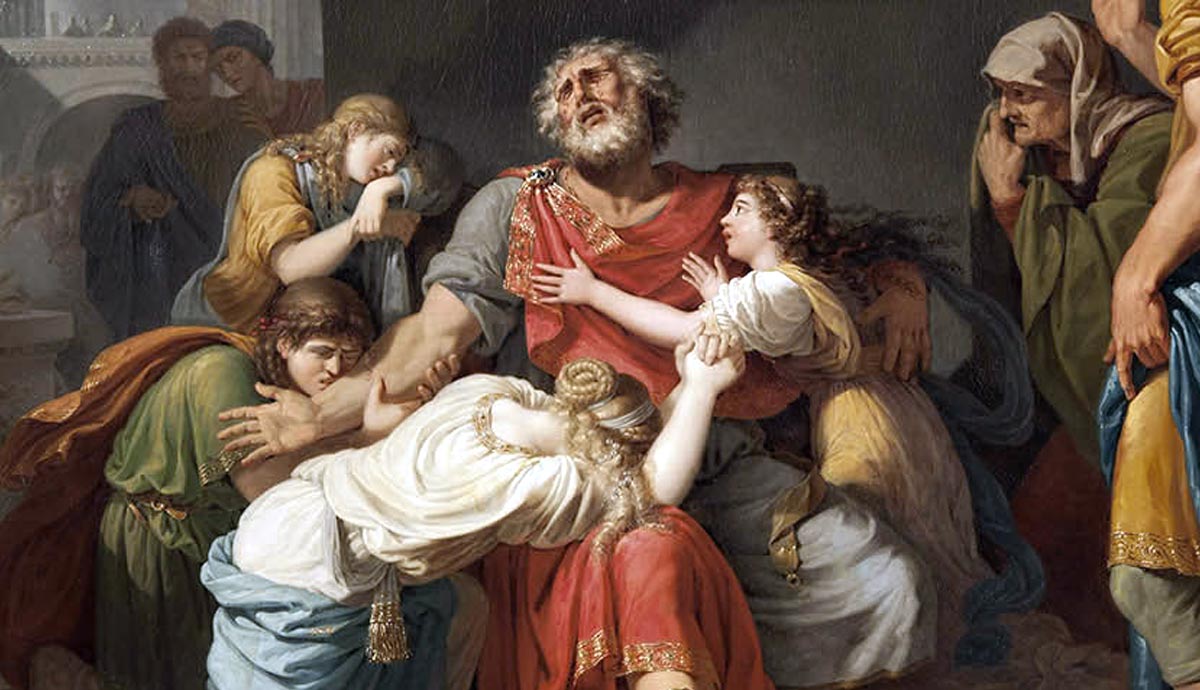
Do we write our own destinies, or are they predetermined? This was a major question in ancient Greek plays. The Greeks’ concept of fate was at the heart of their philosophical thinking. If the gods had something in store for you, then there was no way of getting out of it. Aeschylus, Sophocles, and Euripides—the three great Greek tragedians—looked at how outside forces can control our lives. They wanted audiences to consider whether what happens to people is a result of luck or determination.
Oedipus Rex: The Inescapable Prophecy
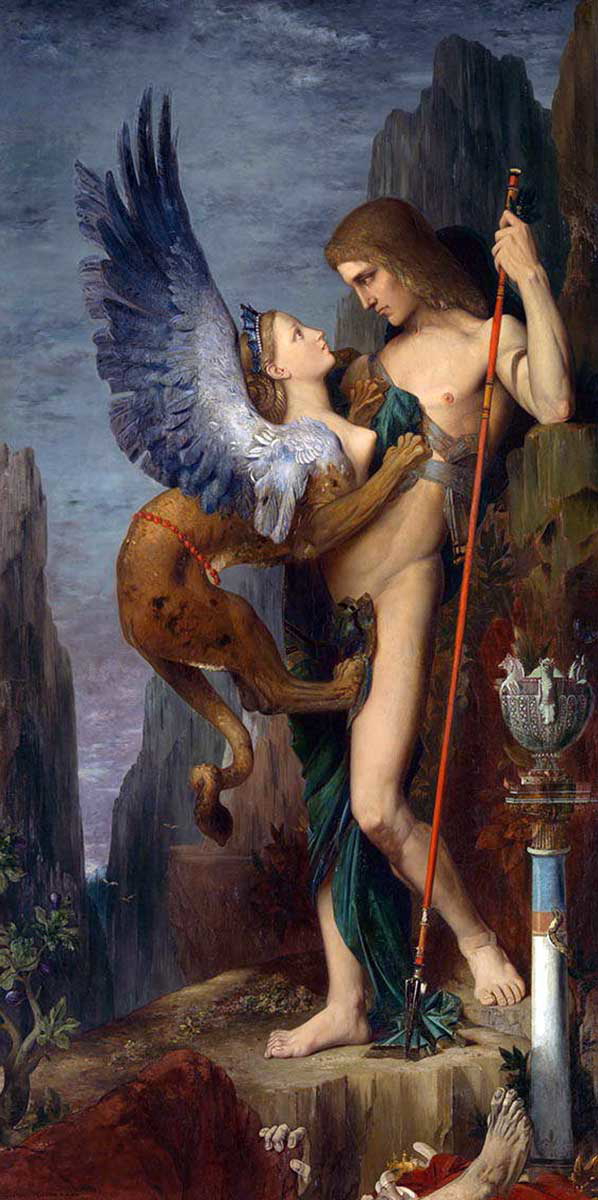
There are several tragedies that illustrate the power of fate, such as Sophocles’ Oedipus Rex. When Oedipus is born, it is foretold that he will one day kill his father and marry his mother.
His parents, King Laius and Queen Jocasta, try to change what seems like destiny by leaving their son on a mountainside as a baby. But you cannot avoid fate just by running from it.
Oedipus is unaware of this background, however, and he grows up in the royal family of Corinth, where he believes he belongs. Then, one day, an argument with a stranger makes him fear (mistakenly, as things turn out) that he might do the dreadful deed after all.
Later on, he marries the widowed queen of Thebes, who is also his mother, Jocasta. Strangely enough, it seems that the more he tries to avoid something happening, the more likely it becomes. Oedipus seems unable to escape what is fated for him.
The story of Oedipus raises a troubling question: Did he ever truly have free will, or was his life predetermined before he was born? Although he makes choices, everything he does points toward the same outcome that was decreed long ago.
In Ancient Greece, it was believed that even the most powerful rulers could not avoid destiny. The tale of Oedipus continues to make people afraid: we cannot all control what happens in our lives because some events might already have been decided for us, maybe when the planets were first set moving.
Agamemnon: Fate, Revenge, and the Curse of the House of Atreus
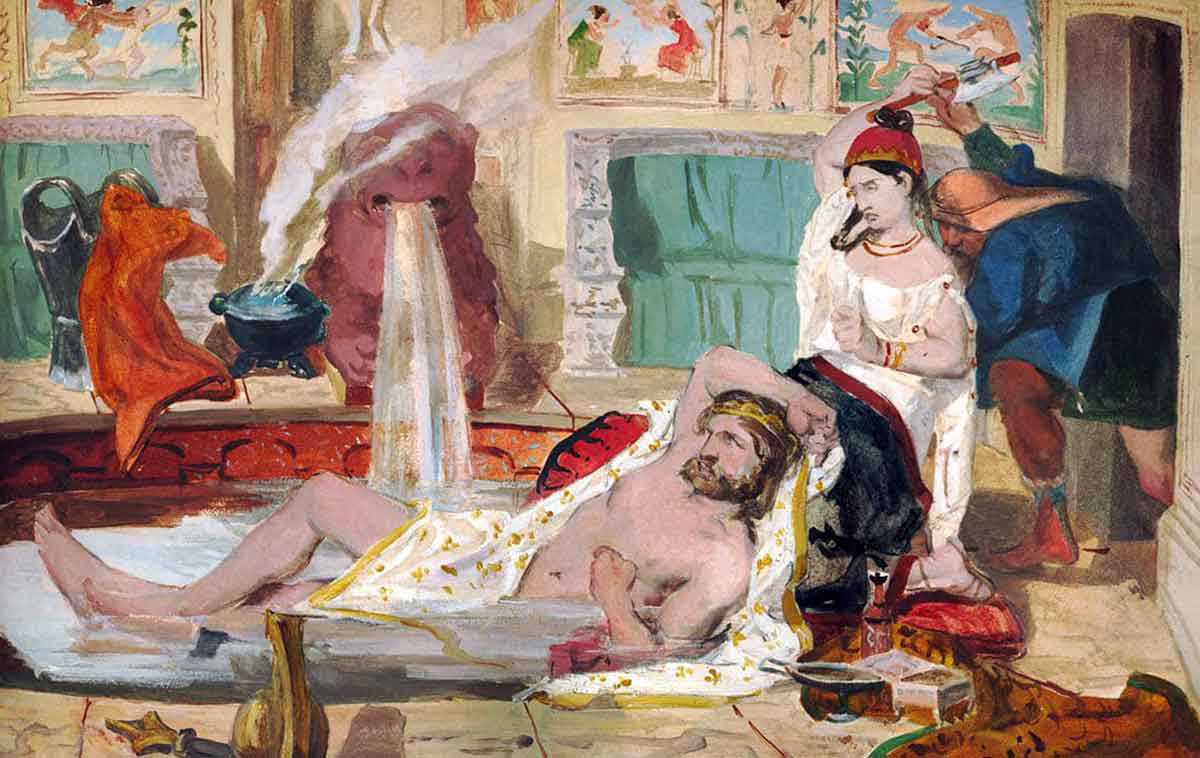
In Agamemnon by Aeschylus, fate is more than just an individual experience—it’s a curse that affects an entire family for generations. Before he even walks onstage, Agamemnon is destined to suffer.
This is because the gods have marked his family for retribution owing to the terrible things done by his forebears, especially his father, Atreus, who once committed some appalling offenses, such as serving up his own brother’s children for dinner. The deities do not forget such behavior, and they make each new generation pay.
The king seals his own doom when he kills his daughter Iphigenia to secure a wind that will blow his ships to Troy. Although he believes this act will make him worthy of divine help in battle, all it really does is unleash a series of vengeful reactions.
Agamemnon’s wife, Clytemnestra, will never forgive him. When the victorious general returns home from the Trojan War, he walks into a carefully planned death trap: Clytemnestra and her lover kill him in the bath.
The Erinyes ensure that things go according to plan. These furies (to use the Greek word) make sure that anyone who commits a blood crime pays for it, if necessary, with their own blood. In Agamemnon’s case, this means his son must also die, though not in this play.
Once you know all this, the play can seem less like a thriller than a courtroom drama with flashbacks. Do any of its characters have free will? Does it matter if they don’t? Must someone avenge a parent’s death, as Orestes is later to do, simply because it is fated?
Also worth pondering is whether the chain of murder and vengeance in the House of Atreus ever has to stop—and if so, how?
Antigone: Fate vs. Moral Duty

In Sophocles’ play Antigone, fate conflicts with moral obligation and divine decree. Antigone, daughter of Oedipus, finds herself in a tragic bind: she must choose between doing what she believes is right and obeying a command.
When her brother Polyneices is branded a traitor and King Creon declares that he shall not be buried, the young woman knows there’s trouble ahead. For in ancient Greece, failure to inter a corpse was to risk divine wrath. Nonetheless, Antigone defies both fate and law: she will bury him and accept the consequences.
Her act seals Antigone’s doom. Creon, fearing challenges to his authority, condemns her to die alone. Yet she does not back down, believing that if the gods have decreed her end (too), their law must outweigh any made by humans or that a woman must follow certain principles regardless of personal cost.
However, some debate whether Antigone was truly destined for tragedy. They suggest her own obstinate nature brought about her downfall.
It is possible she had other options; she might have appealed for leniency or run away. Instead, she decides to face the consequences of her actions head-on—even if it means defying authority to stick up for what she thinks is right.
Ultimately, then, does Sophocles show us someone being pushed around mercilessly (either by gods or fate), or can humans make their own minds up about things after all? The play seems to suggest both at once!
Medea: The Fate of the Outsider

In Medea by Euripides, fate isn’t just prophecy or divine will, it’s about being an outsider in a world that will never accept you. Medea, a powerful sorceress from another land, is destined to suffer because of love, betrayal, and revenge.
She abandons all she has—home, family, even her own people—to help Jason, the Greek hero of the Golden Fleece (a tale he likes to tell). Using her magic to ensure his success, she enables him to survive multiple challenges. Once this feat is accomplished, however, he ditches Medea for a younger bride.
In Ancient Greece, there were clear expectations about the behavior of both men and women. When someone does not behave according to these accepted norms, it becomes very dangerous for them.
Some believe that Medea was destined to suffer, but was she just unlucky, or did she bring about her own misfortune? Far from resigning herself to a life of misery, she actively seeks revenge with chilling results: to hurt Jason, Medea kills their two sons.
It is her calculated, ruthless way of coping with an appalling situation that has made this play one of the most powerful and horrifying pieces of Greek tragedy.
You could argue that love drove her to act as she did—and also drove her to destruction. Alternatively, one could argue that Medea was not a helpless victim of fate. Thus, was she a tragic figure who never stood a chance, or a woman who pursued exactly what she wanted and didn’t let anything get in her way?
Prometheus Bound: Defying Fate and the Gods

In Aeschylus’ Prometheus Bound, fate is both a prison and a source of empowerment. Prometheus, a Titan who has the gift of foresight, knows his fate. He knows that his actions will lead him to suffer, yet he proceeds to disobey Zeus anyway.
Prometheus rebels against the gods by stealing fire and giving it to mankind, which gives them knowledge, warmth, and progress. Zeus is outraged at this and chastises Prometheus by having him bound to a rock where an eagle endlessly eats his liver.
But Prometheus does not ask for mercy. He knows something that Zeus does not: Zeus himself has a fate he cannot escape. This information gives Prometheus a strange kind of power.
The doomed destiny of Prometheus is a paradox of knowing one’s fate and disobeying it. Does knowledge free him, or does it compound only his agony? Unlike Oedipus, who unwittingly blunders into his destiny, Prometheus sees his own agony coming and goes out to meet it.
His story raises a fundamental question: is it nobler to surrender to fate or to fight against it, despite the uselessness of resistance? Prometheus, through his defiant act, is transformed into a figure of revolt, endurance, and the indomitable human spirit.
The Bacchae: Fate, Madness, and Divine Will
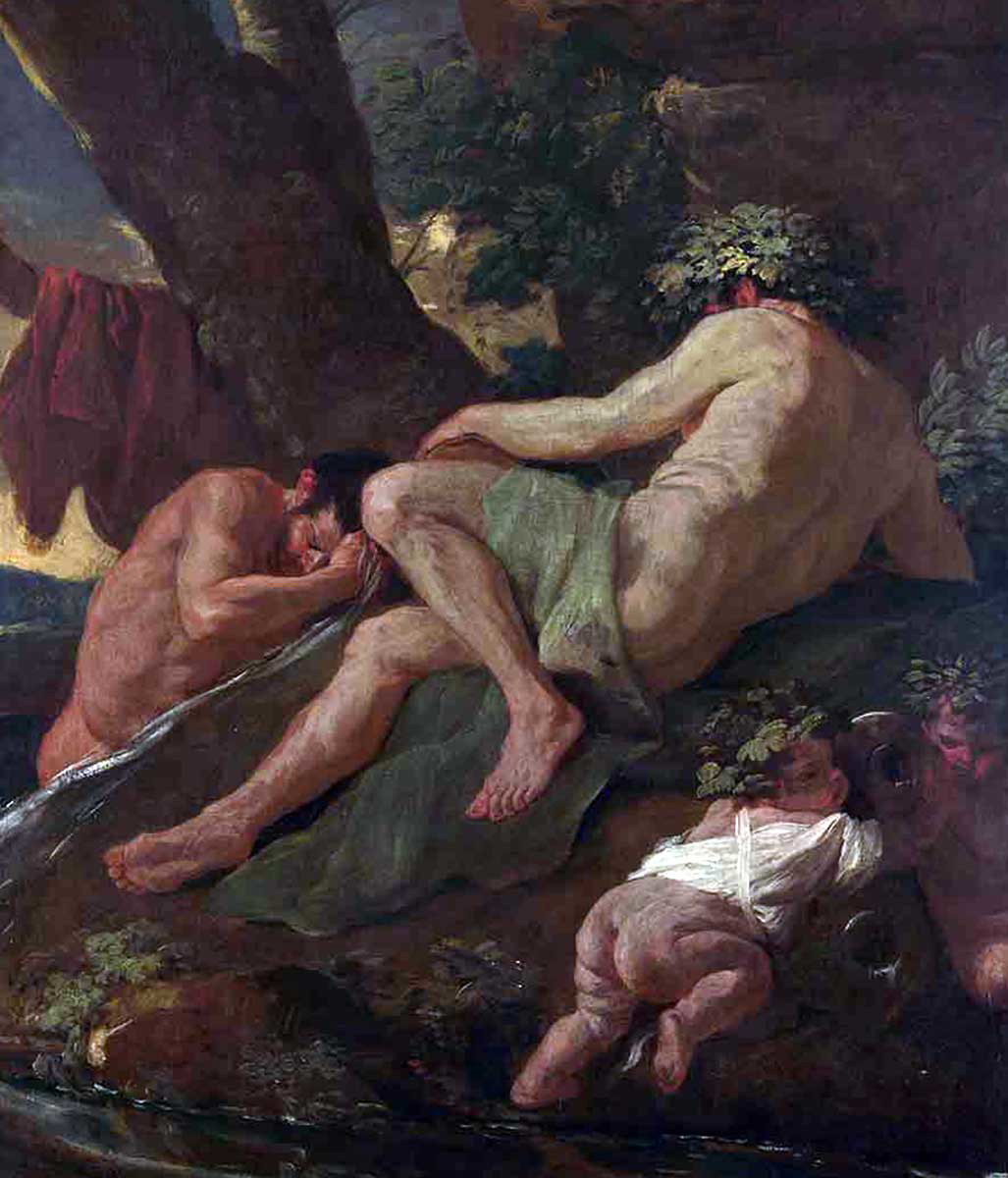
In The Bacchae by Euripides, fate is determined by divine power, human pride, and the false belief in control. Thebes’s King Pentheus believes he is mighty, logical, and able to decide his own destiny—all of which will be proven wrong by a god.
When the deity in question arrives from elsewhere to establish cultic worship within the city’s bounds, Pentheus resists acknowledging him. Instead, this ruler calls the newcomer a charlatan while forbidding those wild rites behind which there lies an essential truth.
It is his own overweening pride that does not allow Pentheus to see how he might regulate what seems chaotic—something Dionysus has planned for him all along!
Dionysus tricks Pentheus into cross-dressing to observe the Bacchic rituals. While in this frenzied state, he meets a terrible end; driven mad with zeal, the female worshipers mistake him for a beast and rip him limb from limb—even his mother, Agave. It’s a hideous deed, but also an unavoidable destiny.
But was Pentheus marked out for disaster from the beginning? Did he bring his doom upon himself by defying a god? Could things have been different if he’d paid respect to Dionysus? Could he have lived?
Greek tragedy appears to say no. If you try to fly in the face of fate, especially divine fate, you’ll find it nips back rather hard: a cautionary tale.
So, What Is the Concept of Fate in Ancient Greek Tragedy?
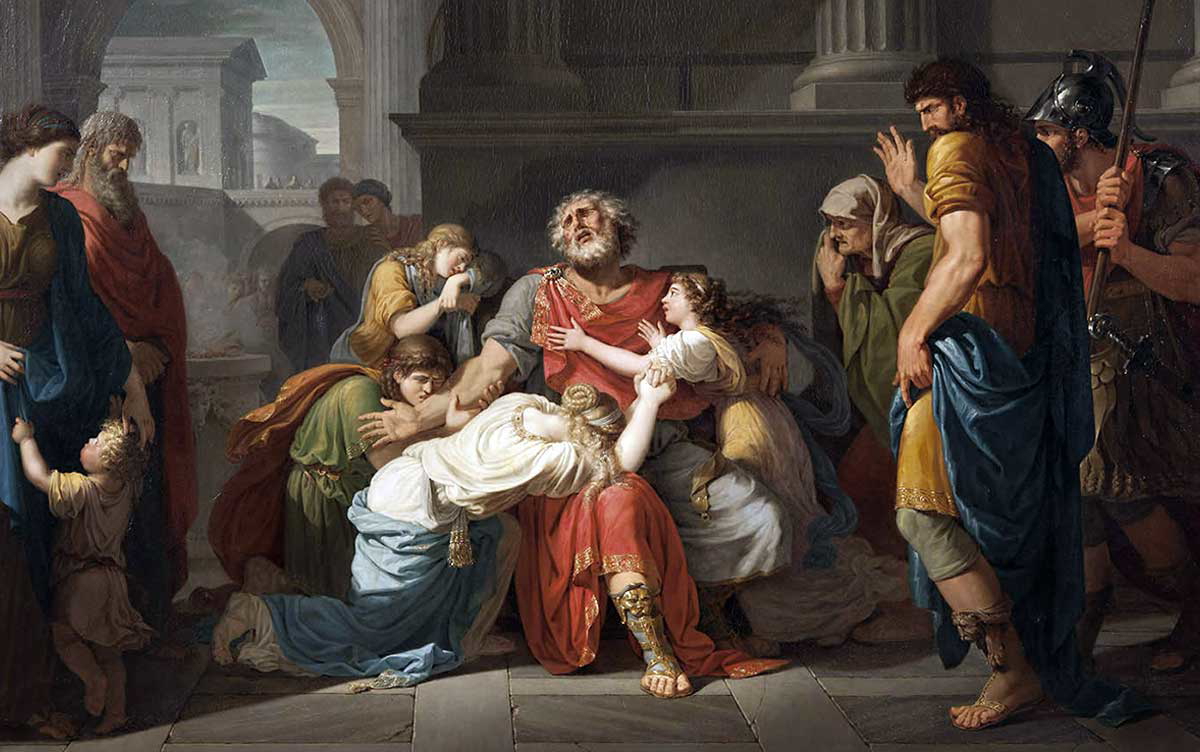
Fate in Greek tragedy is an unavoidable force, at times woven into the very fabric of human existence.
Whether it be through prophecy, the gods’ will, or a curse that runs in the family, some characters cannot avoid meeting a terrible end. And yet, it is often their very flaws—the choices they make and their own refusal to back down—that bring about this outcome.
Greek tragedies show the fight between fate and free will. Some people, like Prometheus, don’t want to obey fate, while others, like Agamemnon, can’t get away from their past.
But does everything happen because of fate, or do our actions still count? Are we just moving towards things that have already been decided, even though we don’t know what they are? Or can we choose what we want to do?
It’s a scary question: does anything we do make a difference, or are our lives predetermined for us?
